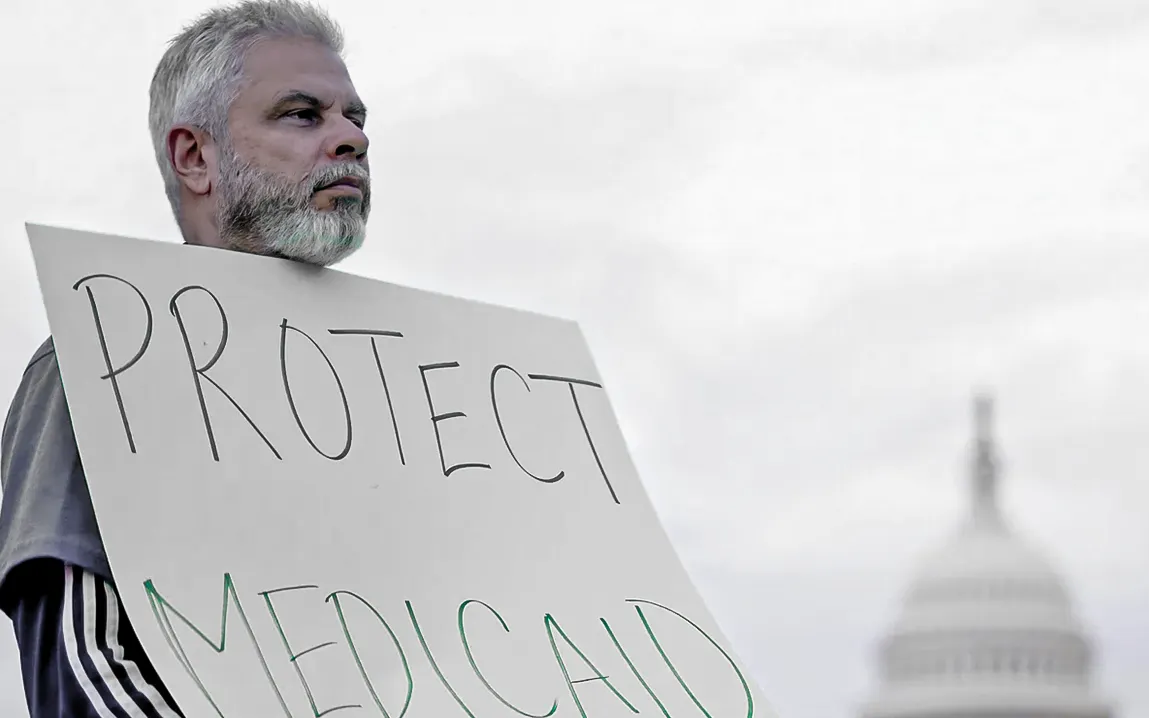A significant healthcare war is brewing in Washington, and the stakes could not be higher. At the heart of the conflict is a Republican-sponsored bill that would eliminate $880 billion in Medicaid—one of the biggest government health programs in the country.
If it is enacted, the plan would deny health insurance to about 13 million Americans in 2034, many of whom are low-wage workers, seniors, and those with serious medical conditions. That has brought a fierce reaction from health advocacy organizations across the country, who assert that the plan would harm the most vulnerable.
This Medicaid battle is the battle we’re all in – and have been in for decades,” stated Julie Nickson, a senior leader at American Cancer Society Cancer Action Network, in a recent press conference with other advocates.
Medicaid covers health care for approximately 71 million Americans with disabilities, older adults, and low-income families. The bill that was put forward would insert hard work requirements into Medicaid—so people would need to demonstrate that they’re working before they can even gain coverage.
Health professionals and advocates claim this type of policy creates enormous barriers for individuals who are already struggling. “One of my patients just told us that when she was diagnosed with stage 4 lung cancer, she was not technically disabled but she could not work. It was a rare day she could even leave the couch,” said Erika Sward, of the American Lung Association. “That you then have to justify your illness while you’re fighting to live is not understandable.”
Research has indicated that the majority of able-bodied people receiving Medicaid already work. Nearly 9 out of 10 Medicaid recipients who are able to work are actually employed, the Kaiser Family Foundation reports. That’s why many characterise work requirements as simply adding more bureaucratic red tape—and forcing individuals off the programme instead of into work.
There’s also data to support that. In Arkansas, where work requirements were piloted in 2018, 18,000 individuals lost their health coverage before the policy was dismantled.
Even conservatives are doubting the move. Missouri Senator Josh Hawley denounced the work requirement notion in a recent New York Times article, indicating that the proposal is not gaining unconditional support from the Republican side as well.
In contrast, former President Donald Trump, who backs the bill, has given conflicting signals in the past. In his campaign, he vowed to defend Medicaid, but when he was in office, his administration tried to dismantle the Affordable Care Act in 2017. That failed, and Trump subsequently referred to the bill as “mean.”
Health Secretary Robert F. Kennedy Jr., who had advocated for the bill in Congress, indicated that “able-bodied [adults] who are unwilling to look for work, to volunteer” are damaging the system. He added that Medicaid only ought to be for “poor children, for mothers, and it’s for the disabled.” But numerous others feel this disregards the millions of working poor and elderly who also rely daily on Medicaid.
The bill does not end with Medicaid reductions. The bill also seeks to end tax credits that assist individuals in purchasing medical insurance under the Affordable Care Act (ACA), otherwise referred to as Obamacare. Tax credits have assisted health insurance in being reasonably priced for millions of Americans who do not have employer-sponsored health coverage.
Prior to the ACA, most were priced out of the market. Without subsidies, millions could again lose their coverage, according to the Congressional Budget Office.
“The work requirements don’t talk about the larger issue in our country of individuals needing to be healthy in order to be able to work,” commented Erika Sward. “You need to be able to access healthcare in order to remain well enough to hold a job.
House Speaker Mike Johnson put a Memorial Day timeline on passing the bill. In the meantime, advocacy organizations, medical professionals, and concerned citizens are waging an intense battle to ensure lawmakers get what’s at stake.
The word from the front lines is direct: it’s not about politics—it’s about people’s lives.



